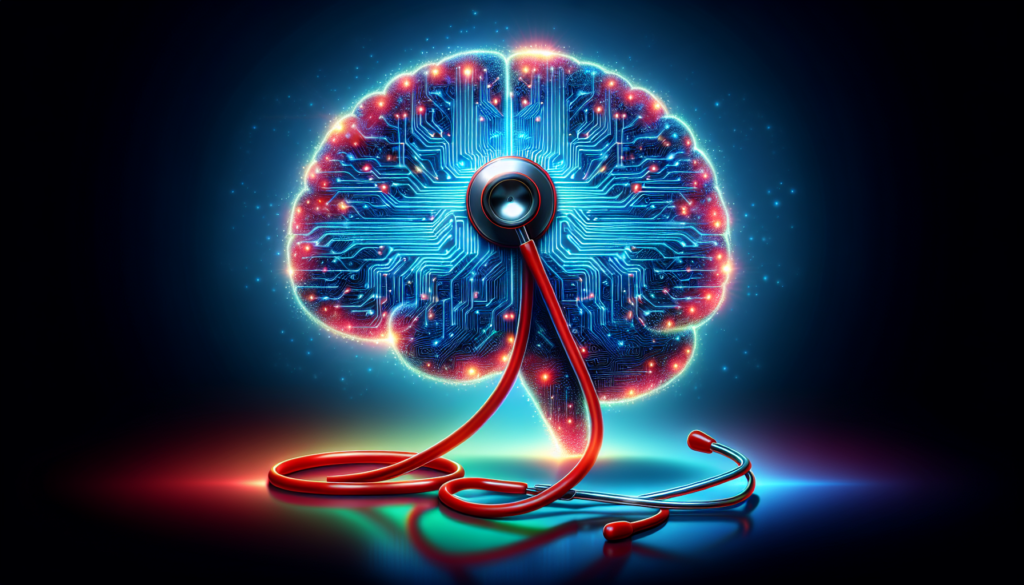The impact of machine learning on healthcare is nothing short of miraculous. With AI algorithms sifting through mountains of medical data, diseases like cancer can be spotted at their earliest stages, giving people hope and a better chance at life. AI is not replacing doctors, but empowering them with tools to diagnose more accurately and treat patients more effectively. And it’s not just about treatment; AI tailors medical treatments to our unique genetic makeup, making “one size fits all” a thing of the past. Machine learning is revolutionizing the healthcare field, offering personalized and cutting-edge care to improve outcomes for all.
Machine Learning
Machine learning is a fascinating and rapidly evolving field within the broader scope of artificial intelligence (AI). It involves the development of algorithms and models that enable computers to learn from data and make predictions or take actions without being explicitly programmed. This powerful technology has the potential to revolutionize various industries and aspects of our lives by providing insights and solutions to complex problems. In this article, we will explore the impact of machine learning on different sectors, ranging from healthcare to education, the environment to transportation, and even finance and retail.

Machine Learning in Healthcare
The impact of machine learning on healthcare is nothing short of extraordinary. Imagine a future where AI algorithms can sift through vast amounts of medical data, identify patterns, and detect diseases like cancer at their earliest stages. This has the potential to save countless lives by enabling early intervention and more accurate diagnoses. Machine learning is not replacing doctors, but rather empowering them with powerful tools to enhance their decision-making abilities and provide more effective treatments. Additionally, machine learning allows for personalized medicine by tailoring treatments to a patient’s unique genetic makeup, bringing an end to the outdated concept of “one size fits all” healthcare.
Machine Learning in Education
In the field of education, machine learning can act as a compassionate teacher, understanding and adapting to each student’s unique needs. By analyzing data on individual learning styles and preferences, machine learning algorithms can provide personalized learning experiences, ensuring that no student is left behind. AI tutors can offer guidance and support to students, making education a more inclusive and engaging process. Furthermore, machine learning can assist teachers in their administrative tasks, freeing up time for them to focus on what they do best – teaching and inspiring students.

Machine Learning and the Environment
The environment is another area where machine learning can have a significant impact. By analyzing complex climate data, AI algorithms can help us gain a better understanding of climate change and its effects. This knowledge can then be used to develop strategies and take action to mitigate its impact. In the agricultural sector, machine learning plays a crucial role in ensuring sustainable farming practices. By optimizing resource allocation, identifying crop diseases, and predicting weather patterns, AI-powered systems can enable farmers to increase productivity while minimizing the environmental footprint.
Machine Learning in Transportation
The transportation sector is undergoing a profound transformation with the help of machine learning. Self-driving cars, once a concept only seen in science fiction, are becoming a reality. These autonomous vehicles show great promise in reducing accidents, easing traffic congestion, and lowering carbon emissions. By leveraging machine learning algorithms, self-driving cars can continuously learn from real-time data and make informed decisions on the road. Furthermore, machine learning can optimize transportation networks, improving logistics and reducing energy waste. As a result, we are moving towards a safer, more sustainable future.
Machine Learning in Finance
Machine learning has also found its way into the world of finance, offering valuable insights and assistance to individuals and businesses alike. AI algorithms can analyze extensive financial data and provide personalized recommendations for investments and financial planning. This empowers individuals to make more informed decisions and optimize their financial well-being. Moreover, machine learning can play a crucial role in detecting fraudulent activities and safeguarding personal and financial information. Advanced algorithms can detect patterns and anomalies, enabling early detection and prevention of fraud, ultimately protecting people’s hard-earned money.
Machine Learning in Retail
When it comes to the retail industry, machine learning has the potential to enhance the entire shopping experience, both for consumers and businesses. AI algorithms can analyze customer data and preferences to offer personalized recommendations, creating a more enjoyable and efficient shopping experience. By leveraging machine learning, businesses can optimize their supply chains, predicting demand, reducing waste, and becoming more responsive to customer needs. This not only leads to increased customer satisfaction but also contributes to a more sustainable retail ecosystem.
Challenges and Ethical Considerations
While machine learning holds incredible promise, it is not without its challenges and ethical considerations. Ensuring that AI is developed and used ethically and with fairness is of utmost importance. It is crucial to address issues of bias and ensure that algorithms do not perpetuate existing inequalities. Additionally, as AI and machine learning technologies reshape the job landscape, it is essential for individuals to remain adaptable and embrace lifelong learning. Education and training programs must evolve to equip people with the skills necessary to thrive in a world where AI is increasingly prevalent.
In conclusion, machine learning is revolutionizing various sectors, from healthcare to education, the environment to transportation, finance to retail. When wielded wisely, this technology has the potential to enrich our lives, enhance our capabilities, and create a future that is both smarter and more compassionate. As we continue to explore the possibilities of machine learning, it is vital that we prioritize ethical considerations, ensure inclusivity, and work towards a collaborative partnership between humans and AI.


